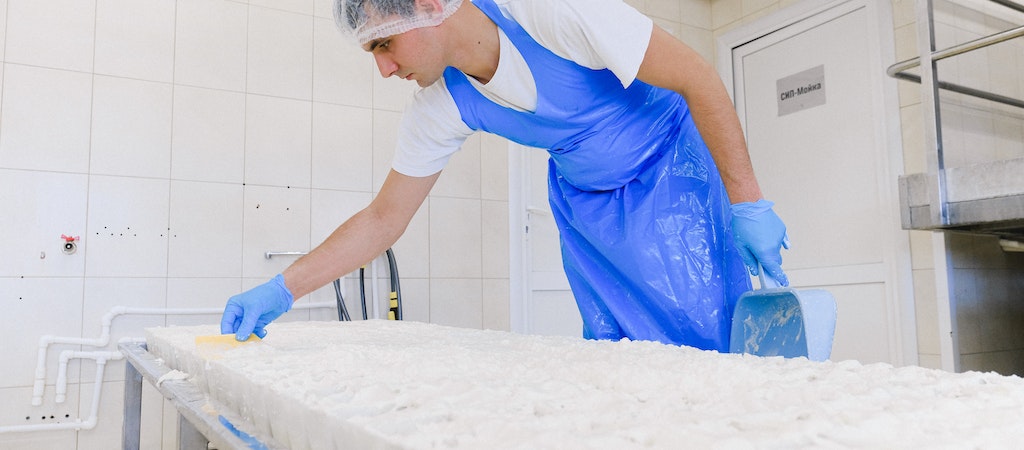
Effective Strategies for Maintaining Industrial Hygiene Standards
Industrial hygiene standards are essential for ensuring a safe and healthy work environment. It is important to have measures in place that will help maintain these standards and protect workers from hazardous materials, chemicals, noise levels, and other potential dangers. This article provides an overview of effective strategies for maintaining industrial hygiene standards in the workplace. We’ll discuss how to assess the risks present in your facility as well as how to create policies that will ensure compliance with all relevant regulations. Finally, we’ll look at ways to monitor progress so you can be sure your efforts are having the desired effect. With proper planning and implementation of these strategies, it is possible to establish a safe working environment while also increasing productivity in your business or organization.
Assessing Risks in the Workplace
Industrial hygiene standards are designed to protect workers from potential health hazards in the workplace. To ensure that all regulations are being met, employers must first assess the risks present in their facility and create policies that will prevent these risks from becoming a problem for employees. Employers need to regularly assess the risks associated with exposure to hazardous materials, noise levels, and temperature. They should also consider the time spent in each area and potential sources of contamination. This assessment helps ensure that all risks are addressed. If any potential risks are identified, employers should take action to reduce the risk and ensure that workers are properly protected.
Creating Policies and Procedures
Once the risks have been identified, it is important to create policies and procedures that will help maintain industrial hygiene standards. These policies should be regularly reviewed and updated as needed to ensure compliance with regulations. It is also important to provide employees with training on how to safely handle chemicals, materials, and other potential hazards in the workplace.
Over time, these policies and procedures should help to minimize any health risks that may be present in the workplace. Make sure that all safety measures are strictly enforced and that any hazardous materials are properly labeled and stored in accordance with all applicable regulations. Being able to ensure workers are safe and healthy is a major part of maintaining good industrial hygiene standards.
Working With Industrial Hygiene Consulting Firms
For employers who are not familiar with industrial hygiene standards, it is a good idea to work with an industrial hygiene consulting firm. These firms specialize in creating and implementing customized safety plans for businesses of all sizes, taking into account the specific risks present in each workplace. They can also provide guidance on how to develop policies and procedures that will help protect employees from hazards while still allowing for productivity. Working with industrial hygiene companies is a great way to ensure that all safety protocols are being followed and that any potential risks are addressed in a timely manner. When you know that your employees are safe from hazardous materials and conditions, you can rest assured that they will be able to work without fear of injury.
Monitoring Progress
In addition to assessing risks and creating policies, employers should also monitor progress regularly. This can be done through regular inspections of the workplace as well as tracking trends in employee health over time. Regular monitoring allows employers to make sure any new regulations are being met and that all safety protocols are being followed. It also provides an opportunity for employers to identify potential issues before they become dangerous or cause long-term health problems for workers.
In addition, employers should also use the latest technology to monitor workplace conditions and ensure that all safety regulations are being met. This includes using sensors to measure noise levels, temperature, and air quality as well as tracking employee health data over time. If any issues are identified, employers should take immediate action to address them.
Preventing Industrial Accidents
Employers should make sure that all workers are aware of the potential risks in the workplace and how to protect themselves from them. This includes providing training on proper safety protocols as well as making sure that any hazardous materials are labeled and stored properly. Employers should also encourage employees to report any accidents or near-misses so that they can be addressed quickly and effectively. Doing so can help reduce the risk of serious accidents that could lead to injury or even death.
One of the most frequent causes of industrial accidents is fatigue. Employers should make sure that employees are getting sufficient rest and take measures to reduce stress levels in the workplace. This includes providing flexible working hours, allowing for breaks during the day, and offering mental health support services when needed. Employees who are well-rested and feel good about their job are less likely to make mistakes that could lead to accidents.
Health and Cost Impact
The health and cost impacts of not following industrial hygiene standards can be severe. Without proper safety protocols, employees could be exposed to hazardous materials or extreme temperatures that could lead to serious illnesses or long-term health problems. Additionally, the costs associated with treating these health conditions or compensating workers for lost wages due to injury can be significant. No matter what the size of your business, it is essential to ensure that industrial hygiene standards are met in order to prevent dangerous situations and save money in the long run.
Trust Among Your Workers
Although much attention is given to the tangible elements of industrial hygiene, such as establishing rules and regulations, tracking advancements, and averting mishaps, it is equally crucial to acknowledge the psychological aspect of workplace safety. If employees perceive that their employers value their safety, they are more inclined to trust them and adhere to safety protocols. This can result in fewer accidents and a more salubrious work environment overall. Knowing that their employers care about their safety can give workers a greater sense of security and well-being.
By following the strategies outlined in this article, employers can ensure that their workplace is safe and compliant with all relevant industrial hygiene regulations. Remember to regularly assess the risks, create and enforce policies and procedures, work with industrial hygiene consulting firms, monitor progress, and prevent accidents. Taking these measures will help you protect your staff while also reducing costs associated with treating illnesses or compensating workers for lost wages due to injury. Ultimately it’s important that businesses of all sizes prioritize worker health by taking proactive action when it comes to setting up proper safety protocols and procedures.
Daily Newsletter
Subscribe to Jebiga for a dose of the best in gear, design, rides, tech and adventure.






